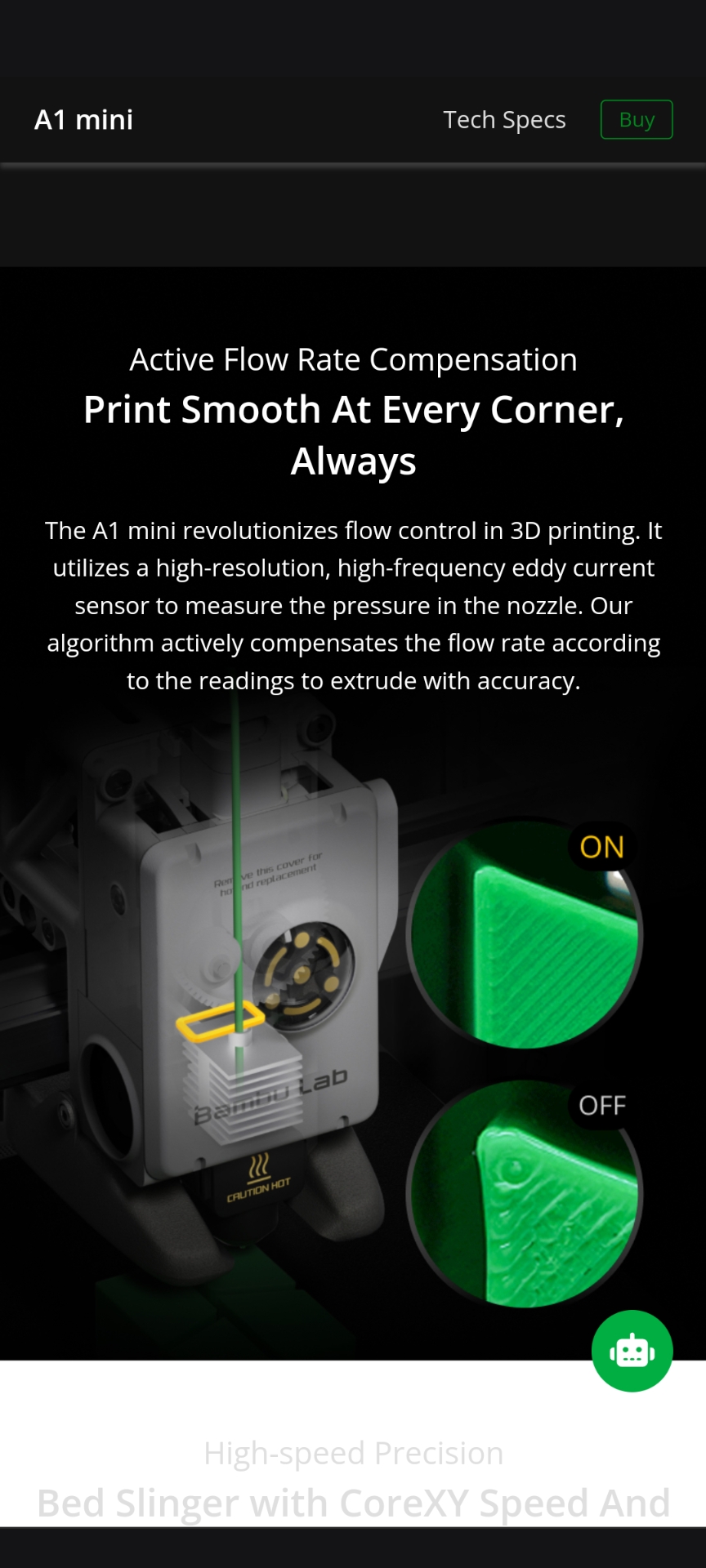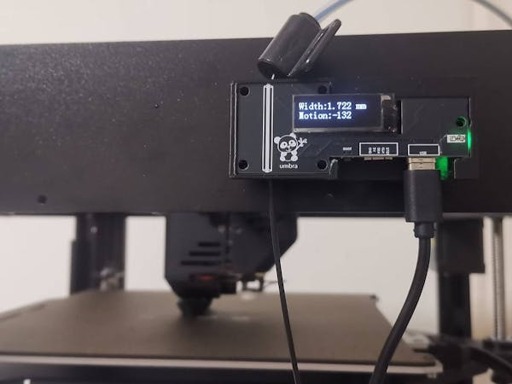It’s a nice thought, but it’s not going to do much in the real world. Between the system reaction time and the device assuming the filament is actually round-- it’s not-- and absolute accuracy of the device, this isn’t doing anything to improve print quality beyond a placebo effect.
But it might make PandaPi some money.
Very curious to see how much this impacts print quality!
I have my doubts that it makes a significant difference in actual print quality though. Looking at polymaker for example, they specify a tolerance of ±0.02mm on diameter for 97% of the material, and the article mentions an effective accuracy of this sensor of ±0.015mm.
Maybe the best tuned perfectly calibrated hobbyist printer will see a difference, but for a regular well-tuned printer I think this is is more of a cool novelty mod.
Largely agree, but I am curious. I also have an ethos of “trust, but verify” which this sensor scratches at. Why not measure even high quality filament?
It’s not that much more than a traditional runout sensor, so it seems worth springing for it your printer doesn’t have one.
I want to rip off bambu’s eddy current nozzle pressure sensor but measuring eddy currents is confusing
Beacon and cartographer are both Eddy current sensors and both do nozzle contact probing too. E3d has their Revo PZ with does nozzle contact probing with a peizo sensor if you’re in that ecosystem.
I mean this

Properly tuned PA achieves this well enough without the need for the sensor I would say.
I dont know how effective this sensor is, but if its as good as they want people to believe then a number of “unicorn chasing” mods like filament width/diameter sensors, or just tuning of pa and extrusion multiplier at all could become unnecessary. I don’t have any bambu printers, let alone models with the sensor, so I don’t actually know how good it is.
Currently I waste a chunk of time and maybe a buck of filament per roll on extrusion multiplier calibration. width sensors can mitigate it well enough most of the time but they all have the same limitation of oval sections being possible to read two ways. A nozzle pressure sensor would also be the ideal companion to a pellet extruder.
If I didn’t have to dedicate most of my waking life to my shitty job to stay alive, I’d probably be buying a bunch of parts and giving money to pcbway or jlcpcb and making a bunch of shitty failures of trying to replicate the functionality.
Ahh, didn’t know this was a thing



